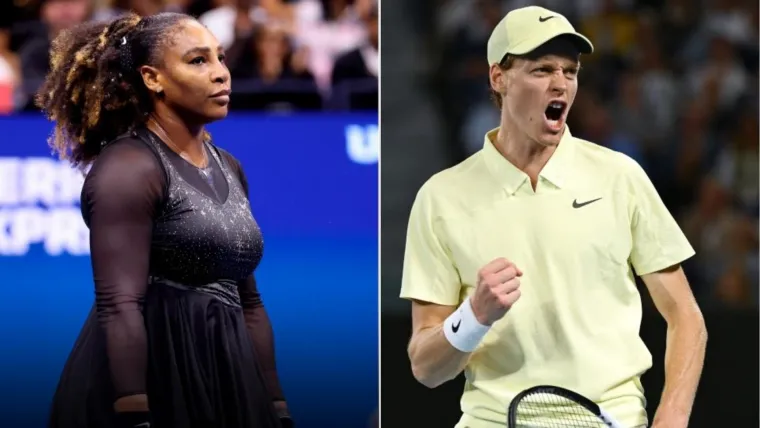Despite retiring from tennis nearly three years ago, Serena Williams continues to make her mark inside and outside the court.
The 23-time Grand Slam champion has enjoyed a banner past 12 months, making waves for a number of reasons. Among the 43-year-old’s most prominent accomplishments in the calendar year: purchasing a stake in WNBA expansion franchise the Toronto Tempo, hosting the ESPYs, and delivering a stern rebuke at Chiefs kicker Harrison Butler’s misogynist and homophobic commencement speech at Benedictine College. And, of course, her crip-walking cameo during Kendrick Lamar’s halftime show at Super Bowl 59.
All told, it was quite the season for Williams, a mother of two whose passion for tennis still blazes bright as ever. Unsurprisingly, her exploits brought myriad attention — including, most notably, a spot on the Time 100 list.
Interviewed by Sean Gregory, one of the magazine’s senior-most correspondents, Williams dished on a series of topics, some related to the sport she holds so dear, others not so much.
Few talking points proved as captivating as her insight on Jannik Sinner and his recent doping-related suspension.
MORE: Serena Williams dishes on why ‘it costs a lot’ to be successful
Here’s what you need to know.
What did Serena Williams say about Jannik Sinner?
Williams waxed lyrical on Sinner’s skills and his contribution to the tennis world thus far in his glint career.
But she also took issue with the way his doping ban was handled. The men’s world No. 1 was handed a three-month suspension after testing positive for clostebol, an anabolic agent used in the “treatment for muscle wasting diseases, osteoporosis, severe burns, and certain types of anemia.”
“I love the guy, love this game,” Williams told Time. “He’s great for the sport. I’ve been put down so much, I don’t want to bring anyone down. Men’s tennis needs him.
“[But] if I did that, I would have gotten 20 years. Let’s be honest. I would have gotten Grand Slams taken away from me.”
Williams famously never tested positive for a banned substance despite facing more drug testing than any other top player.
“You would have heard about [a Williams PED scandal] in another multiverse,” Williams said.
Williams took exception with the nature of Sinner’s ban, drawing parallels to the high-profile suspension of another former world No. 1: Maria Sharapova. Much like Sinner, a tennis tribunal ruled that Sharapova, too, unintentionally ingested a banned substance. Despite that admission, Sharapova’s final sentence was far harsher than that of Sinner’s: she was handed a two-year ban, eventually reduced to 15 months on appeal.
Just weirdly and oddly, I can’t help but think about Maria all this time,” Williams said. “I can’t help but feel for her.”
Jannik Sinner doping controversy
Sinner tested positive for Clostebol during the 2024 BNP Paribas Open, held in Indian Wells, Calif. Sinner maintained his innocence, saying the trace amounts of the substance in his doping sample were the result of a trainer using the substance on his own finger before giving Sinner a massage.
He initially avoided discipline despite his drug test results, picking up a host of wins on the ATP circuit, including an ATP Finals conquest.
In February, the World Anti-Doping Agency challenged an independent tribunal’s decision to clear Sinner of all wrongdoing related to his test results. Sinner subsequently accepted a three-month ban — a hiatus that will ensure that he won’t miss a major.
Multiple tennis players expressed their displeasure with the decision, including Canadian star Denis Shapovalov and Australian standout Nick Kyrgios.
Read the full article here



